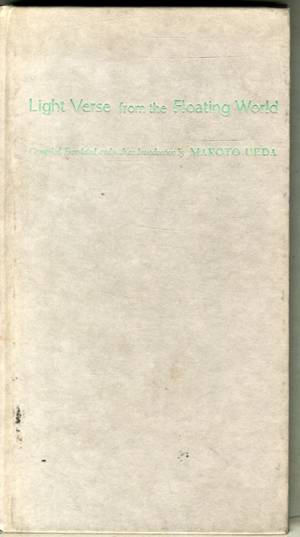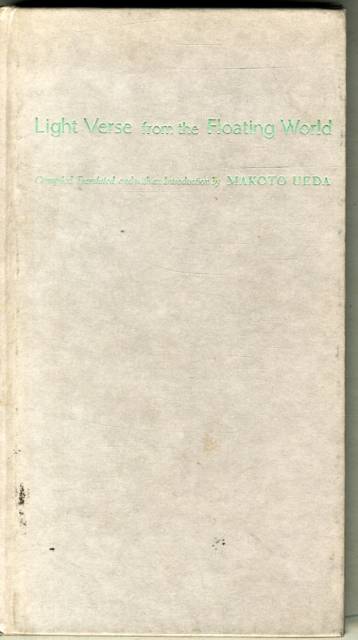
- Afhalen na 1 uur in een winkel met voorraad
- Gratis thuislevering in België vanaf € 30
- Ruim aanbod met 7 miljoen producten
- Afhalen na 1 uur in een winkel met voorraad
- Gratis thuislevering in België vanaf € 30
- Ruim aanbod met 7 miljoen producten
Zoeken
Light Verse from the Floating World
An Anthology of Premodern Japanese Senryu
Hardcover | Engels
€ 237,45
+ 474 punten
Omschrijving
Similar in form to the well-known, more serious haiku, the satirical-and often humorous-poems known as senryu have received little scholarly attention because most were written by anonymous amateur poets and were therefore considered popular literature unworthy of serious study. Senryu are interesting, however, precisely because they reflect the thoughts and feelings of ordinary townspeople in a way that other more orthodox types of Japanese literature do not. In his introduction on the nature and historical background of the form, Makoto Ueda explores the elements of humor and satire contained in senryu, highlighting the mores that lie behind the laughter the poems evince.
Specificaties
Betrokkenen
- Vertaler(s):
- Uitgeverij:
Inhoud
- Aantal bladzijden:
- 288
- Taal:
- Engels
Eigenschappen
- Productcode (EAN):
- 9780231115506
- Verschijningsdatum:
- 6/10/1999
- Uitvoering:
- Hardcover
- Formaat:
- Genaaid
- Afmetingen:
- 127 mm x 229 mm
- Gewicht:
- 462 g

Alleen bij Standaard Boekhandel
+ 474 punten op je klantenkaart van Standaard Boekhandel
Beoordelingen
We publiceren alleen reviews die voldoen aan de voorwaarden voor reviews. Bekijk onze voorwaarden voor reviews.







